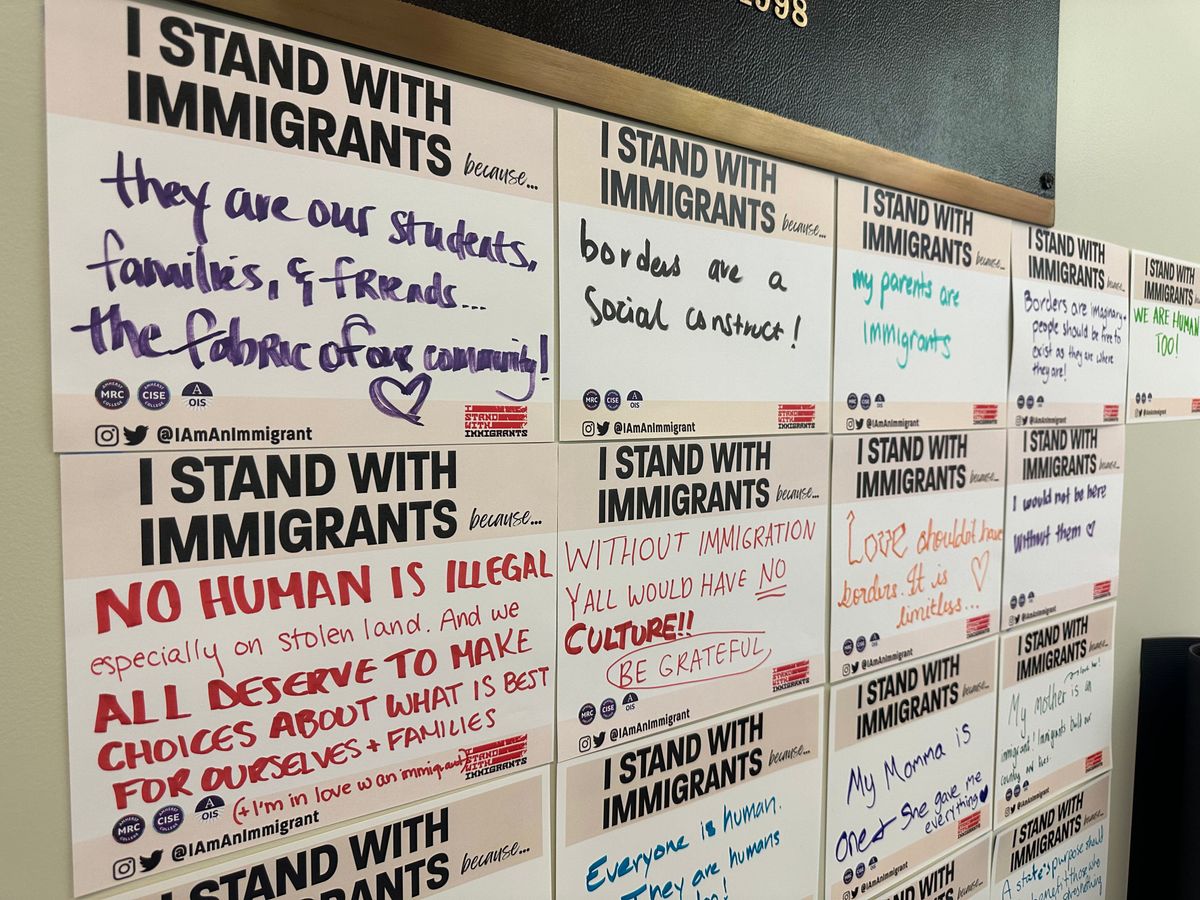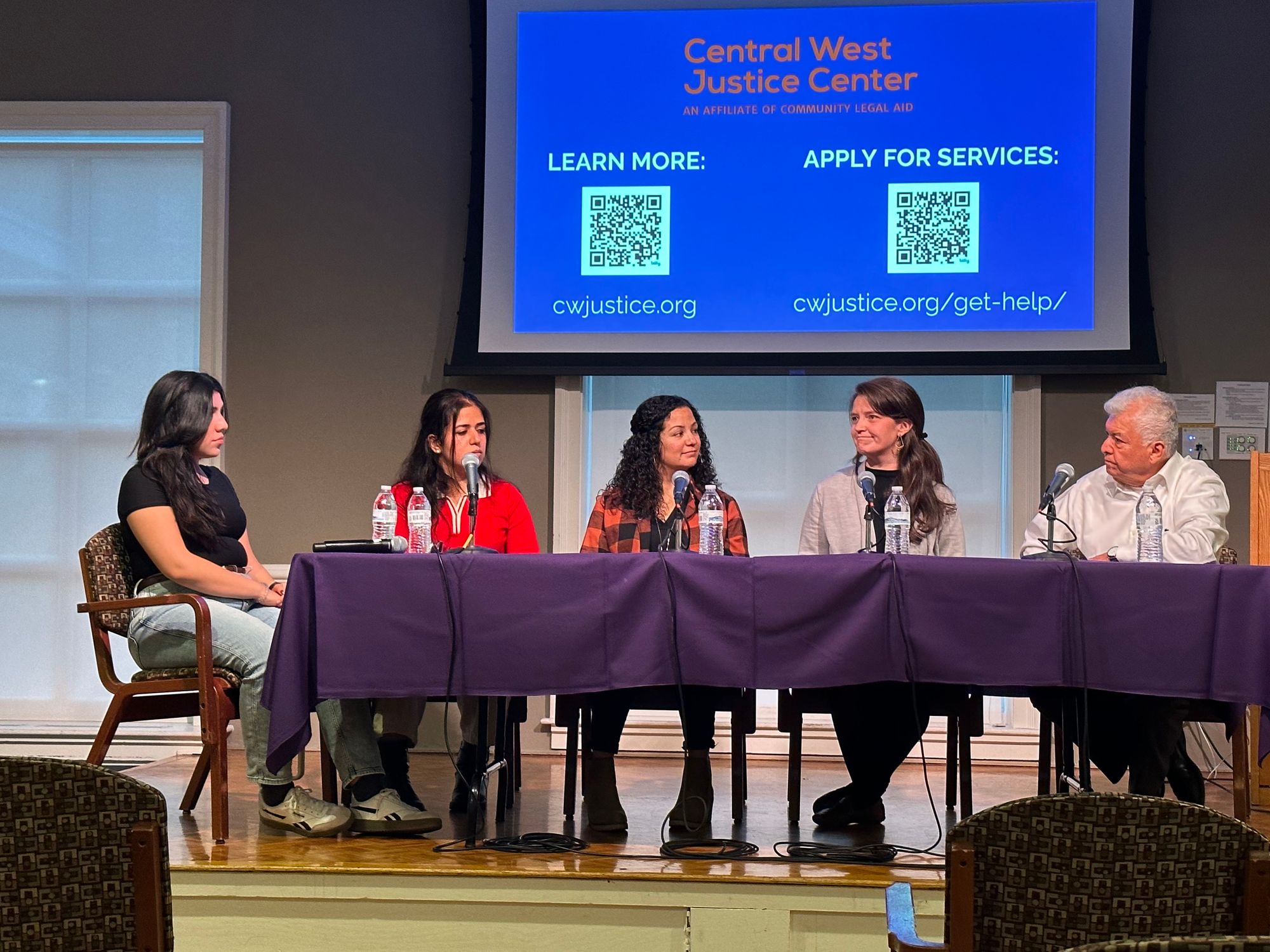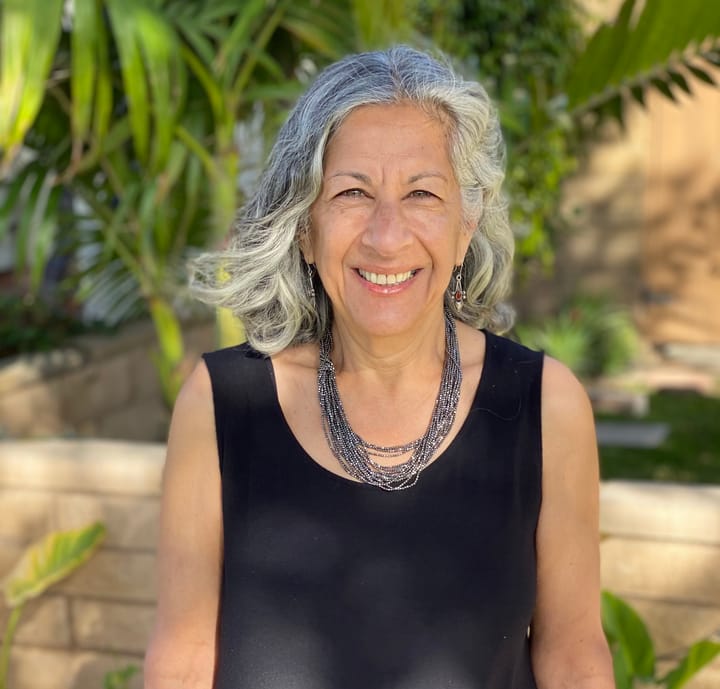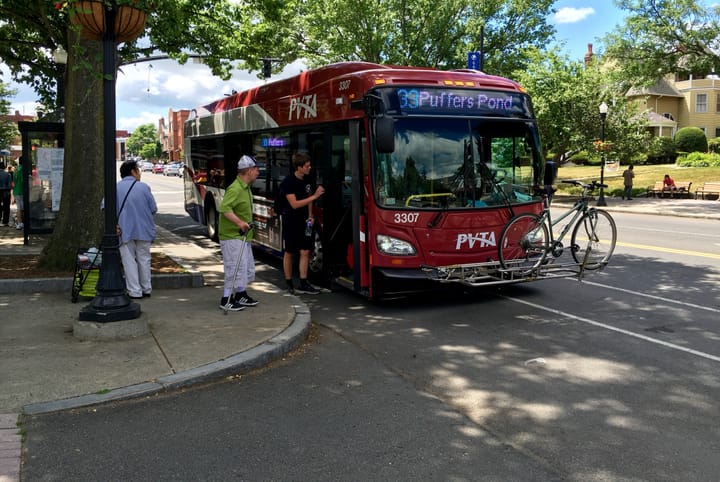College Hosts Events to Express Solidarity with Immigrant Community
From Oct. 10 to 23, the Office of Immigration Services hosted the annual “I Stand with Immigrants” series in an attempt to highlight the experiences of undocumented immigrants in the college community.

The Office of Immigration Services collaborated with groups like the Multicultural Resource Center and the Center for International Student Engagement to launch its second annual “I Stand With Immigrants series.” In three events across two weeks, immigration experts and current students expressed their solidarity with immigrants.
“Immigrant experiences can be nuanced and precariously situated, and many immigrants do not share their stories widely in an effort to maintain safety and anonymity,” said Hanna Bliss, director of immigration and visa services. “This series gives an opportunity for the broader campus to learn about, learn from, and uplift immigrant experiences in our community.”
At the UndocuAlly training on Oct. 16, Catherine Ramirez Mejia, an access and resource specialist, explained the best ways to support immigrant students on campus. Mejia, who works at the Massachusetts Immigrant & Refugee Advocacy Coalition, advocated for using specific, non-offensive terminology to address immigrants, a topic she believes is often overlooked.
“If you do not know [someone’s immigration] status, you can say ‘immigrants’ or ‘non-citizens,’” Mejia said. “When you’re doing research about immigrants, you may see the word ‘unauthorized’ more likely, but I want to make the point that we’re talking to undocumented communities — terms that are more immigrant-friendly are not ‘illegal’ or ‘unauthorized.’”
Mejia also mentioned potential measures colleges can take towards being a more immigrant-friendly campus, such as faculty expressing support towards immigrant students in their syllabi, or having designated staff members to offer resources to undocumented students, as the college does through the Office of Immigration Services.
“Immigrant students of all statuses need resources and support because they’re stressed not only because they have exams, but also because of their intersectional identities,” Mejia said.
The second event in the series, the Local Immigration Advocates panel on Oct. 16, was moderated by Lori Alarcon ’24 and featured local immigration center leaders and law students who discussed their experiences in the field. Massara Almafrachi, a fourth-year law student and a refugee herself, recalled how support from volunteers transformed the resettlement agency she worked at during the evacuation of Afghanistan in 2021.
“We were overwhelmed with the amount of volunteers that stepped in. We had volunteers for everything, including legal services, and were able to assist clients faster than a lot of organizations,” Almafrachi said. “It can make a huge difference in the life of nonprofits and in the families and honestly, the volunteers as well, because they get to see what families are going through.”
When asked about common misconceptions about immigrants, Kelly Morgan, a supervising immigration attorney at Central West Justice Center in Springfield, sought to debunk the myth that immigrants cause higher crime rates in communities.

“An area that I’m really passionate about is working with [immigrants] who get caught up in the criminal justice system,” Morgan said. “A surprising thing about immigration law people might not realize is that immigrants commit [fewer] crimes than U.S. citizens, but they’re also over-policed and much more likely to come into contact with the criminal justice system.”
The panel drew around 15 students, some of whom joined because of personal experiences with immigration processes. Melani Garcia ’25, whose parents are undocumented immigrants, found the panel helpful because it provided information about local immigration resources to those who may not already be familiar with them.
“I think it’s always important to know outside resources because, especially for the undocumented community, there’s not really a lot of resources in [many] colleges,” Garcia said. “And also these events are really important [for] uplifting people and knowing that these organizations do care and they are doing their work.”
Still, Garcia believes that the college could do more to support the undocumented community.
“Unfortunately … people whose identities are the most marginalized have to be the ones speaking up the most,” Garcia said. “I think that the school could take more of a charge on that in order to not only uplift the students’ voice[s], but also make more radical and meaningful change.”
The series concluded on Oct. 23 with a Day of Action, a nationwide initiative that more than 200 colleges and universities participated in this year. Students and faculty were encouraged to join a photo campaign by writing down their reasons for supporting immigrants on a piece of paper and having their photo taken as they held up the paper. By noon, Keefe’s atrium walls were filled with writings describing the need to protect immigrants’ humanity.




Comments ()